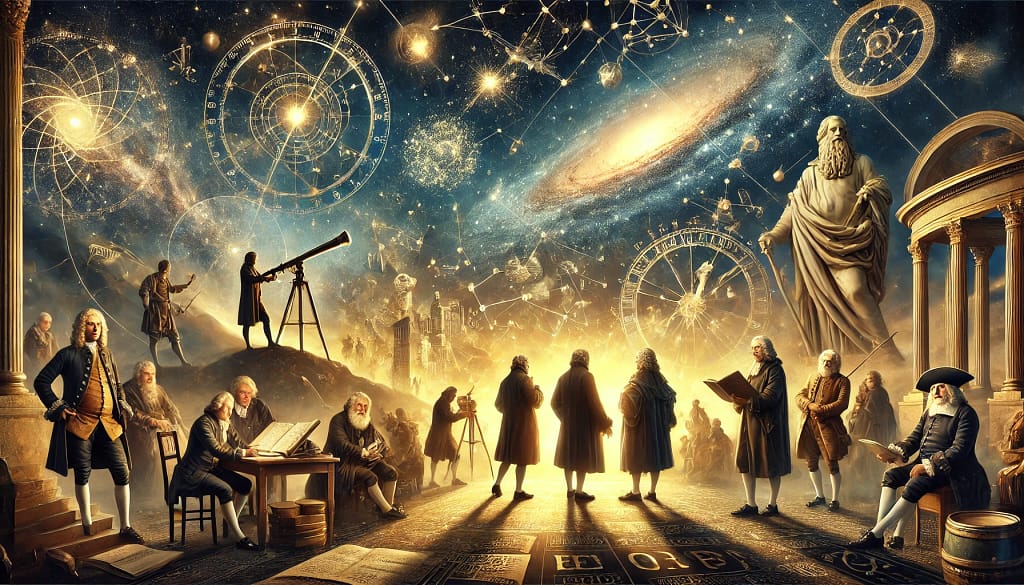The groundbreaking ideas of Copernicus and Jordano Bruno, once considered heretical, laid the foundation for the scientific Revolution of the 17th century. Luminaries such as Galileo, Kepler and Newton and their pioneering work not only revolutionized our understanding of the cosmos but also continues to shape contemporary scientific thought and exploration.
From the Scientific Revolution to the Enlightenment
The Scientific Revolution brought about a shift in thinking that emphasized observation, experimentation, and reasoning as the primary means of understanding the world. This new approach to knowledge influenced not only the natural sciences but also the way people thought about politics and society. The belief that the universe operated according to discoverable laws of nature led to the idea that human societies could also be governed by rational principles. This notion became fundamental to the Enlightenment, fueling political and intellectual revolutions across Western Europe and its colonies in the late 18th century.

Rational Inquiry and Societal Transformation
The Enlightenment was a pivotal era that expanded the transformative ideas of the Scientific Revolution beyond the confines of natural science and into the domains of philosophy, politics, and society. Deeply influenced by the successes of the Scientific Revolution, Enlightenment thinkers sought to apply the principles of rationalism and empirical inquiry—so effective in understanding the natural world—to the organization of human societies. They questioned and challenged established authorities, whether religious, monarchical, or aristocratic, and pushed for profound political reform and restructuring of societies based on rational, secular principles.
Thinkers of this period dared to question the status quo, advocating for the application of scientific rational thought to all aspects of human life. They began to think and reason beyond the constraints of religious traditions, reimagining a society liberated from divine doctrine and the confines of scholasticism. Central to this intellectual endeavor was the belief that through reason, one could uncover objective truths about human nature and the best ways to structure societies. Philosophers such as Thomas Hobbes, John Locke, Montesquieu, and Voltaire, were at the forefront of this movement, each seeking to establish a rational foundation for society advocating for political reform and individual rights.
Ambitions and Limitations
However, due to their personal beliefs and the historical context of their time, many Enlightenment thinkers pursued a vision of change that was constrained by their own cultural and philosophical frameworks. Their quest for reform often focused on replacing divine authority and religious institutions with secular, rational principles, rather than advocating for a profound transformation of the social fabric itself. This approach reflected a preference for reason and science as the guiding forces of governance and social order, but it did not always challenge the fundamental hierarchies and inequalities embedded in society.
Their reforms aimed to create a more enlightened and just society but were still largely confined within the existing structures of power and privilege, or even reinforced such structures. For example, while Locke championed individual rights and limited government, his ideas were largely aimed at protecting the interests of property owners. Montesquieu advocated for a separation of powers, yet his model drew inspiration from the existing English system, with its hereditary aristocracy. Voltaire, a fierce critic of religious intolerance, was nonetheless a supporter of “enlightened despotism,” believing that a wise and benevolent monarch could be the best agent of reform. Their political thoughts often reflected a preference for strong, centralized authority and an emphasis on the importance of stability and order, aligning more closely with a pragmatic, even somewhat Machiavellian, view of power rather than a democratic theory.